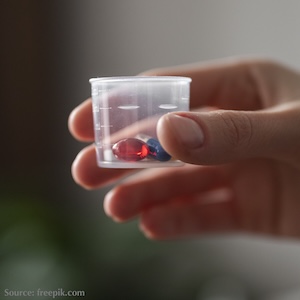Abstracts from the 29^ National Conference of the Italian Society for the Study of Hemostasis and Thrombosis, Bergamo, Italy | 23-25 October 2025
Vol. 4 No. s1 (2025)
CO31 | Immune system profiling in FVIII-treated and emicizumab-treated pediatric HA patients
A. Cottonaro1, S. Akula1, B. Pollio2, I. Ricca2, T. Martini2, J. Agnelli Giacchello3, P. Sciancalepore3, R. Santi3, A. Follenzi1,3, S. Merlin1 | 1Università del Piemonte Orientale, Health Sciences, Novara; 2A.O. Città della Salute e della Scienza, SIMT Immunohematology and Transfusion Medicine Service, Diagnostic Department, Torino; 3Azienda Ospedaliera SS. Antonio e Biagio e Cesare Arrigo, Alessandria, Italy
Publisher's note
All claims expressed in this article are solely those of the authors and do not necessarily represent those of their affiliated organizations, or those of the publisher, the editors and the reviewers. Any product that may be evaluated in this article or claim that may be made by its manufacturer is not guaranteed or endorsed by the publisher.
All claims expressed in this article are solely those of the authors and do not necessarily represent those of their affiliated organizations, or those of the publisher, the editors and the reviewers. Any product that may be evaluated in this article or claim that may be made by its manufacturer is not guaranteed or endorsed by the publisher.
Published: 22 October 2025
384
Views
0
Downloads










